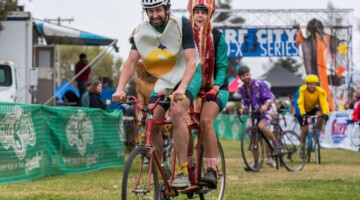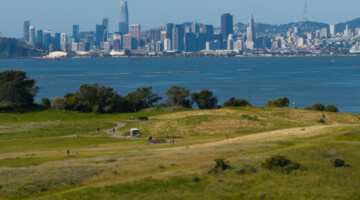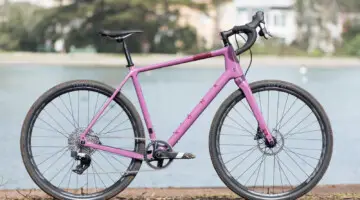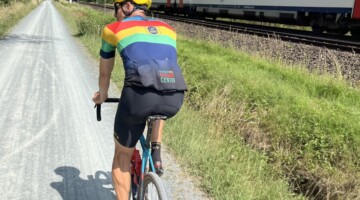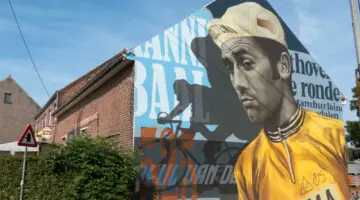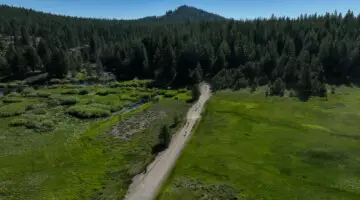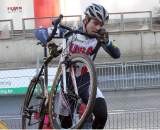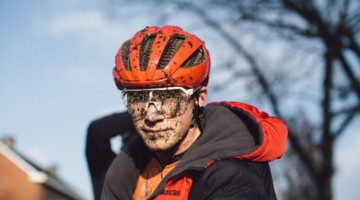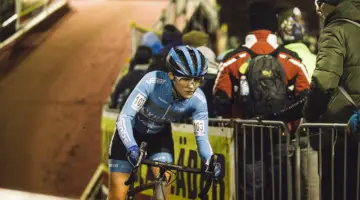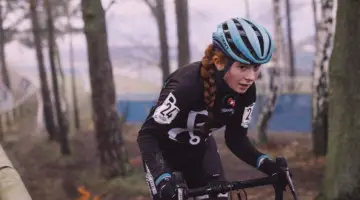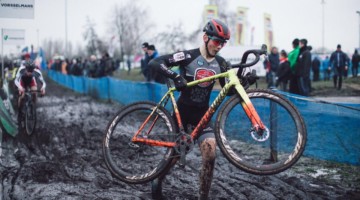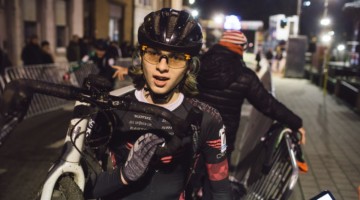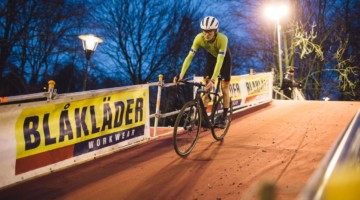Montana State Junior Nathan Phillips has embedded himself in EuroCrossCamp to document the inner workings of the camp that has had a pivotal role in developing American cyclocross talent. Nathan’s first entry after arriving at the camp and traveling with the team to the Zolder World Cup is below:
One might assume the “Cross” in EuroCrossCamp stands for the obvious place it holds in the name of our sport, cyclocross. But after the Zolder World Cup today, and Cyclocross Magazine‘s first evening around the team house, maybe the meaning of “Cross” in EuroCrossCamp has another meaning as well.
Promptly after each respective race -Junior, U23 and Elite, everything and everyone is set into motion as vans and cars are loaded for the trip back to the team house in Izegem (today’s race in Zolder was about 110 miles away from the house, which sits about 60 miles west of Brussels). The Camp’s staff speaks to their riders not only out of duty, but also with strong promotion. For it is the “Cross” between living and racing in Europe and living and racing at home that the Camp works to lessen the burden of.
It’s easy to underestimate the weight and stress that comes with picking up and traveling to Europe and yet handling the expectation to immediately achieve results on the parcours of foreign soil. However touted as it may be, it’s not until traveling with the team that I realized the true value in having home field advantage in racing.
This is never more apparent than at the races. Without the familiarity of a course you’ve ridden and raced many times before, a rider’s focus can be a bit glazed in the spaces between the fencing leading you around each lap. Helping each rider focus by finding his own comfort zone while racing in Europe is what Geoff Proctor and the staff of the Camp works hard at, because when it comes down to it, fitness ends up just one small variable each rider’s race performance. With competitors banging elbows and throwing punches after crashes, keeping your cool and staying focused can make a much bigger difference than a few extra watts in Europe.
Without too much time spent directly in the house yet, I’ve already seen that it’s the work spent packing for the race, in transit to the race, during then event, and afterwards that really makes the difference in handling the “cross” for each racer. Throughout the entire race day – early mornings, followed by team briefings in the vans, numbers, pre-riding, racing, and getting back to the house – the riders enjoy support and are able to focus on warm-up, racing, cool-down and rest and recovery.
With more racing still on the way, and a seemingly later start of the day tomorrow in Diegem, I look forward to spending more time with the Camp and giving you a deeper view. Check back tomorrow for my next report, and if you’re interested in something in particular, drop me a comment below.




